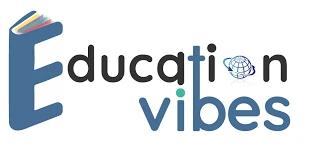Studying in the United States is a dream for many international students seeking top-notch education, diverse cultural experiences, and unparalleled career opportunities. However, before embarking on this journey, it\'s crucial to understand the eligibility requirements to ensure a smooth application process and successful admission. Here\'s a comprehensive guide to help you navigate the essential criteria for Study in USA:
Academic Qualifications:
- High School Diploma or Equivalent: Most undergraduate programs in the USA require a high school diploma or its equivalent. It\'s essential to have completed a secondary education that is equivalent to a U.S. high school diploma.
- Bachelor\'s Degree: For graduate programs, applicants must possess a bachelor\'s degree or its equivalent from a recognized institution. The degree should be relevant to the field of study the student intends to pursue at the graduate level.
Standardized Tests:
- SAT/ACT: Many undergraduate programs require standardized test scores such as the SAT or ACT. These tests assess a student\'s readiness for college-level work and are often a crucial component of the application.
- GRE/GMAT: Graduate programs may require standardized test scores like the Graduate Record Examination (GRE) or the Graduate Management Admission Test (GMAT). These tests evaluate applicants\' aptitude for advanced study in specific fields.
English Proficiency:
- TOEFL/IELTS: Since English is the primary language of instruction in most U.S. universities, international students are required to demonstrate proficiency in English. Tests like the Test of English as a Foreign Language (TOEFL) or the International English Language Testing System (IELTS) are commonly accepted.
Some institutions may have their own English language proficiency tests or accept other standardized tests as alternatives.
Financial Documentation:
- Proof of Sufficient Funds: International students must demonstrate their ability to finance their education and living expenses while studying in the USA. This typically involves providing bank statements, sponsorship letters, or scholarship awards to prove financial capability.
Some universities may also require students to submit a financial affidavit confirming their ability to cover expenses for the duration of their studies.
Visa Requirements:
- Student Visa (F-1 or M-1): Once admitted to a U.S. institution, students must obtain a student visa to legally study in the country. The most common types are the F-1 visa for academic studies and the M-1 visa for vocational programs.
To apply for a student visa, applicants need a Form I-20 (for F-1 visas) or Form I-20M-N (for M-1 visas) issued by the institution they plan to attend, proof of payment of the SEVIS fee, and other documentation as required by the U.S. Embassy or Consulate.
Admission Requirements:
- Application Forms: Each university or college sets its own admission requirements and application procedures. Students must carefully review and complete all required application forms, including essays, letters of recommendation, and transcripts.
- Deadlines: It\'s essential to adhere to application deadlines, which vary depending on the institution and program. Missing deadlines can jeopardize chances of admission.
Other Considerations:
- Health Insurance: Many universities require international students to have health insurance coverage while studying in the USA. Students may need to purchase a plan offered by the university or provide proof of adequate coverage from an external provider.
Academic Prerequisites: Some programs may have specific academic prerequisites or additional requirements such as portfolios (for art programs), interviews, or entrance exams.
Navigating the eligibility requirements to study in the USA can seem daunting, but with careful planning and preparation, it\'s entirely achievable. By ensuring you meet the necessary academic, language proficiency, financial, and visa requirements, you can embark on an enriching educational journey in one of the world\'s most renowned destinations for higher education.


